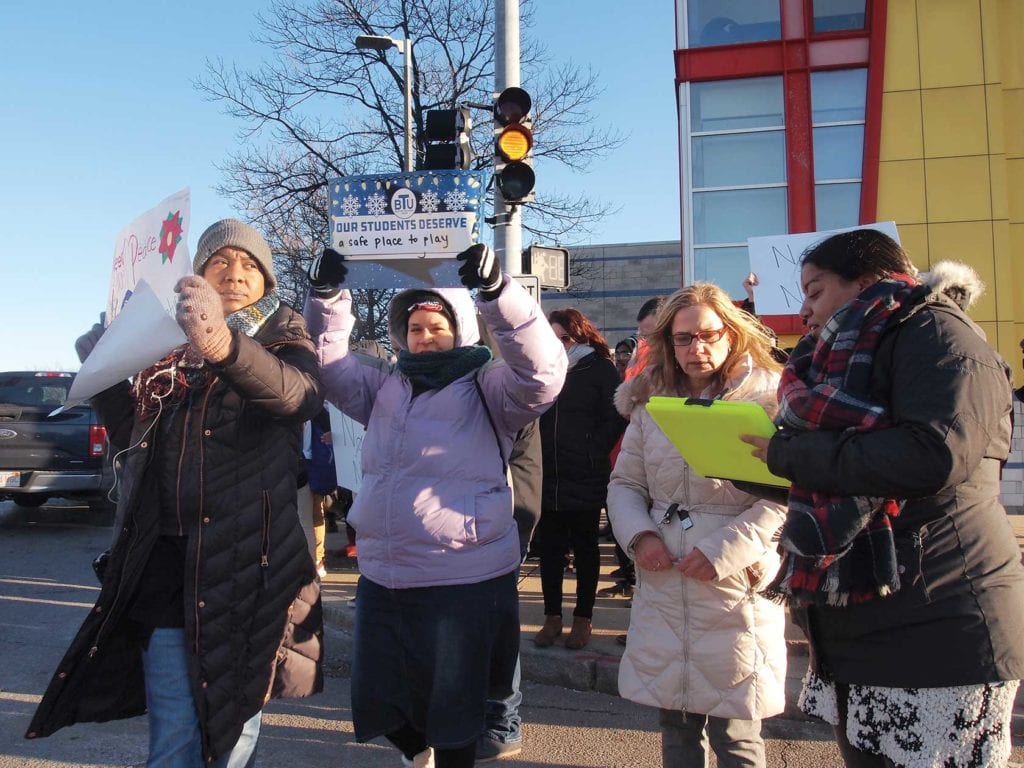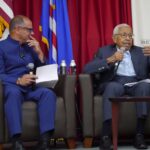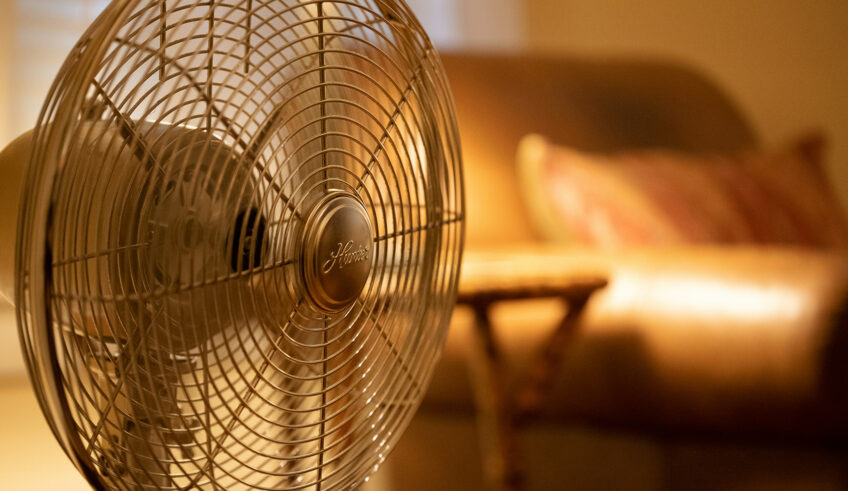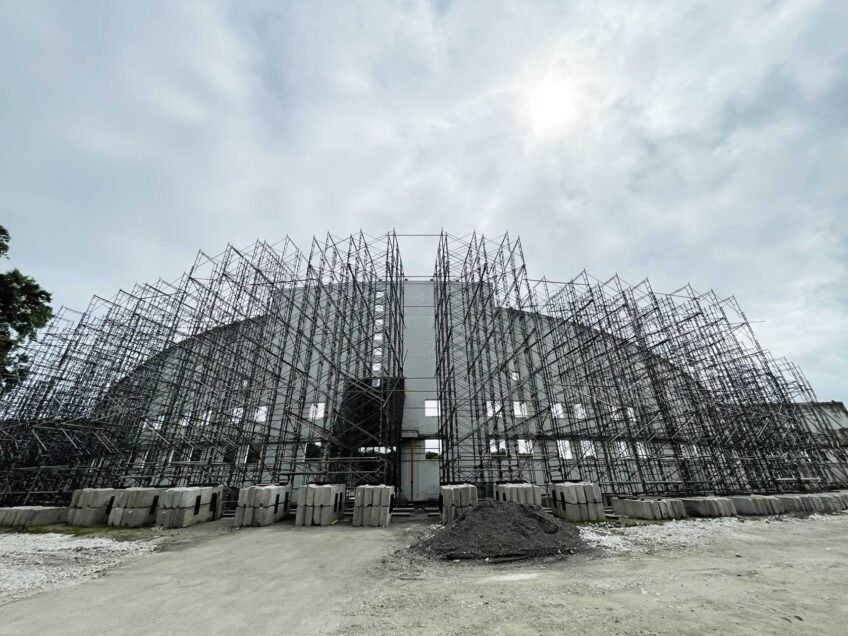Protest over needles at Orchard Gardens school
Parents, teachers demand action from city, school dept.

Last year, students at the Orchard Gardens K-8 Pilot School protested the proliferation of used hypodermic needles littering their schoolyard, demanding that city officials keep the area around their school clean and safe.
Last Tuesday, students, parents and teachers took their protest to the streets, blocking traffic at the intersection of Melnea Cass Boulevard and Albany Street to demand action.
“Our kids can’t even go outside for recess,” parent Ursula Allston-Hill told reporters. “It’s got to stop. It’s got to stop today.”
Allston-Hill and others say the problem has gotten worse in the last year. In November, a student was pricked by a needle on school grounds, the second such incident in as many years.
The needles are left in the playground and on the field behind the school by heroin users who shoot up regularly on the streets around the school. The area around Melnea Cass Boulevard and Massachusetts Avenue is often referred to as “Methadone Mile” for the drug treatment facilities located in the area and has become something of a magnet for users from across the state.
On any given afternoon, users can be seen congregating near the exit ramp from Interstate 93, where many gather to beg spare change from passing motorists. While some businesses have erected fencing, many of the users congregate in parks and playgrounds in the area, leaving discarded needles in the grass and woodchips.
“Every school within walking distance of the Methadone Mile is affected,” said Domingos DaRosa, who coaches a Pop Warner football team and cheerleading squad in nearby Clifford Park. DaRosa says he regularly sweeps the field for needles and human waste. Often in the warmer months, users sleep on the field.
At Orchard Gardens, the students, teachers and parents are demanding that city officials secure the school yard and field with an 8-foot-high fence.
“They need to secure the outside of the building so kids can play there,” DaRosa said.
Mayor Martin Walsh in a statement to news media said the city has increased from two to four the number of staff in the Boston Public Health Commission’s Mobile Sharps Unit, tasked with removing discarded needles from public places.
“It is completely unacceptable for young children in the City of Boston to be exposed to needles of any kind, particularly while they are at school,” the statement read. “We have taken steps to protect our students from the harm of the opioid epidemic by increasing the capacity of the Mobile Sharps Unit, prioritizing substance use education and prevention, and training staff on how to properly dispose of any encountered needle.”
DaRosa said the four staff aren’t enough to keep up with the proliferation of needles in the city’s parks.
Speaking during the Boston School Committee meeting Wednesday, student Jay’dha Rackard said she often finds users sleeping on the sidewalks near the school and that students constantly find needles. In a lobby at the school, a sign in English, Cape Verdean Kriolu and Haitian Creole tells students the three steps they should take when they see a needle: stop, turn and leave and tell a teacher.
Neither the sign nor the box installed by city officials for users to discard their used needles have made a dent in the problem, Rackard said.
“I don’t feel safe at all,” she told the school committee members. “We are children, and we are asking you to keep us safe.”
At-large City Councilor Annissa Essaibi-George echoed calls members of the Orchard Gardens community made for the city to install an 8-foot fence with push-bar exits securing the playground and common areas of the school as well as thrice-daily sweeps of the premises.
“We should not only be reactive, but proactive when it comes to the safety to the children in our schools,” she said. “School safety means there are no needles near our children and that we are actively creating and maintaining safe spaces.”
Jay’Dha’s mother, Janina Rackard, added to the list of demands: Removal of wood chips, where users commonly hide their needles and cleaning of playground surfaces, where users regularly urinate and defecate.
“They’re urinating where children are playing,” she said. “This is ridiculous.”
Perille told Rackard that BPS would redouble its efforts to keep the school needle-free.
“We are not doing a good enough job,” she said. “We will do better.”
If there are no changes, activists say, they will continue weekly protests, blocking traffic on Melnea Cass Boulevard until the school yard is free of needles.







